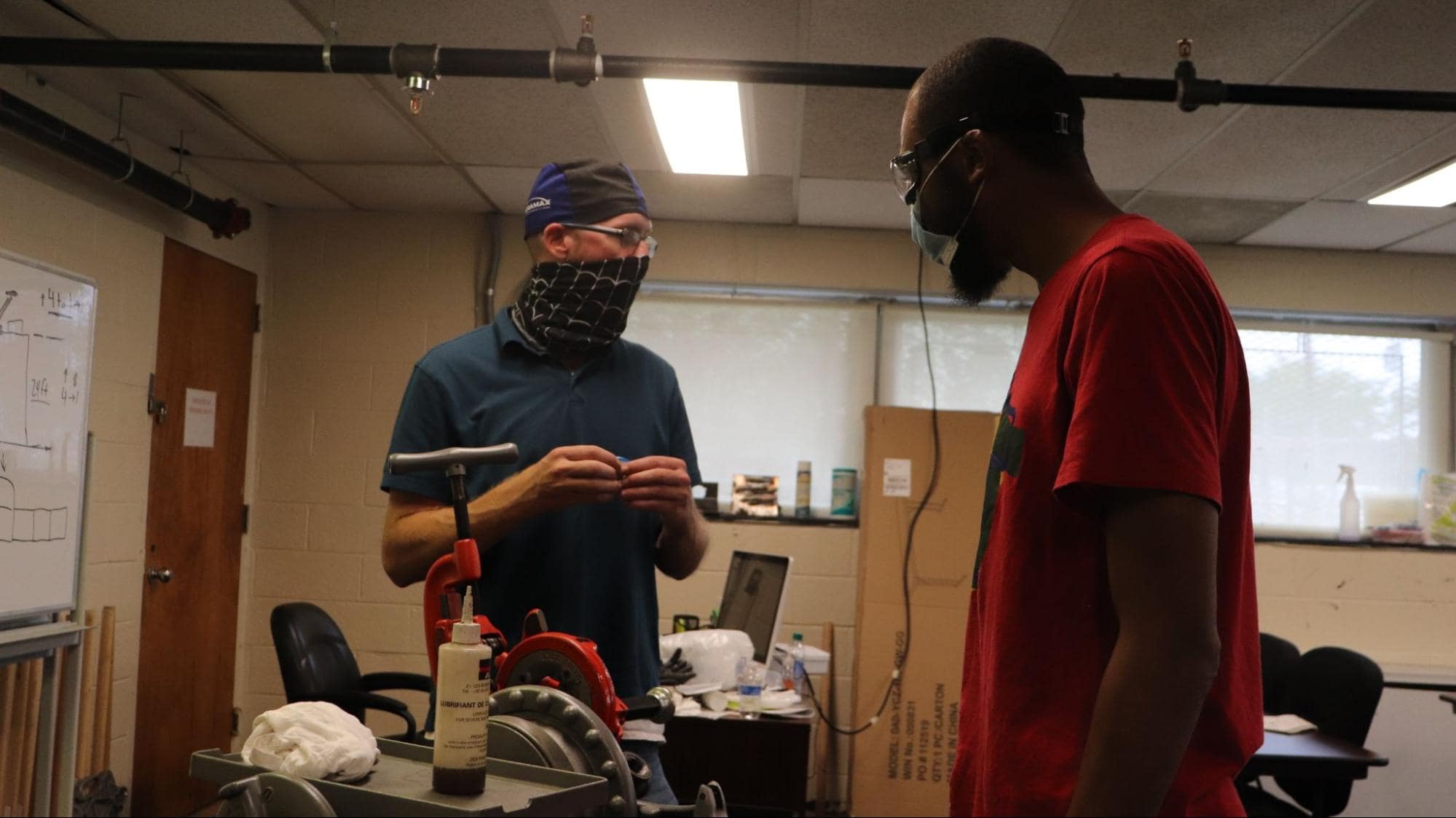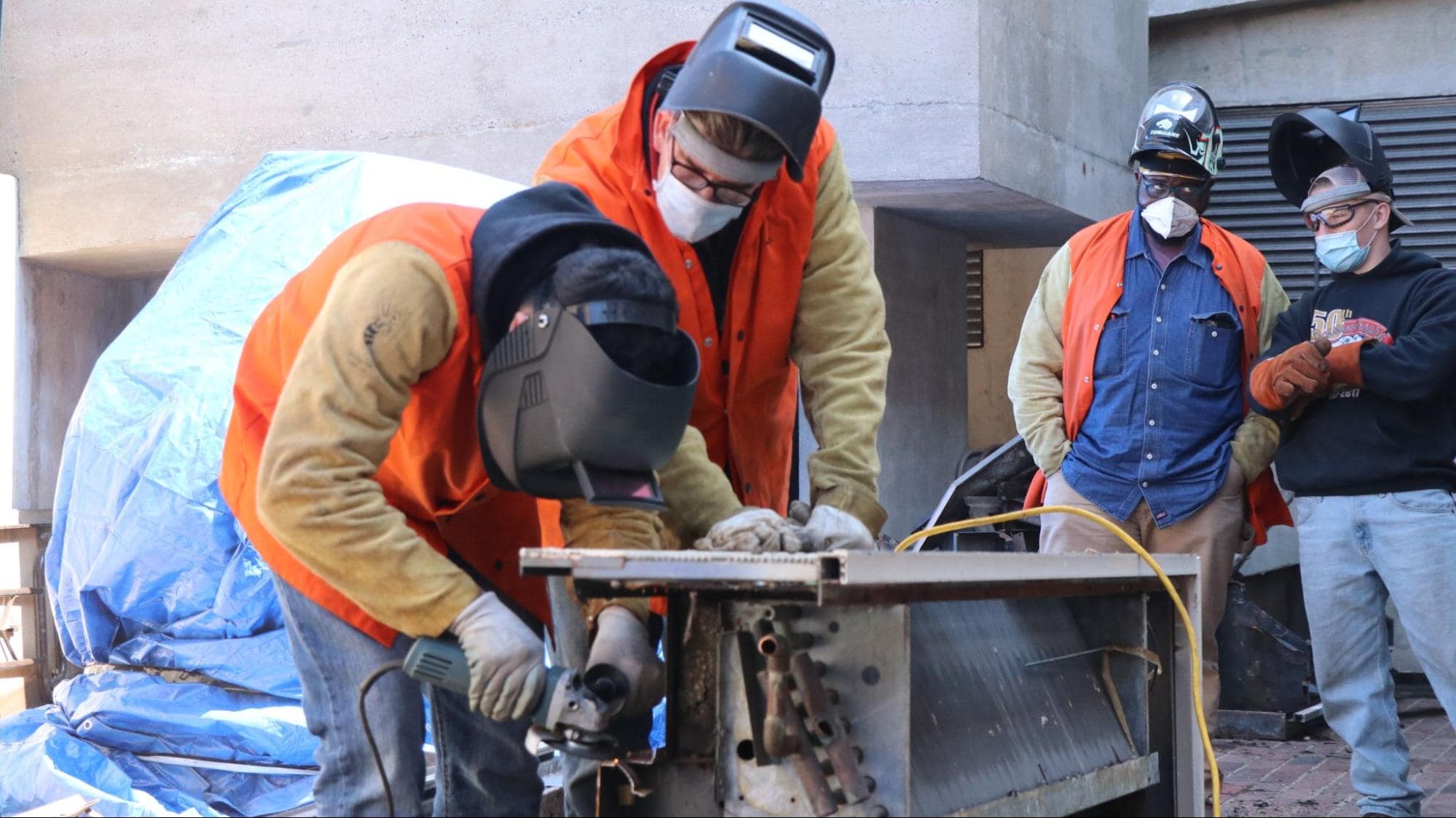Plumbing is one of the world’s oldest and most crucial trades, having existed since the first civilisation of the ancient Romans. Today, plumbing designates almost an individual’s entire work, from controlling the essential flow of liquids in our homes to the movement of liquids and gases based on industrial operations in factories and businesses. A Plumber certification specialises in maintaining, designing, assembling, installing, and repairing numerous piping systems.
Plumbing involves attention to intricate details. Craft workers with plumbing licenses in Pennsylvania in this field specialise in areas like sprinkler fitting, steam fitting, or pipe fitting. Workers and individuals can build their careers with the Plumbing Certification Program offered by numerous plumbing trade schools nationwide.
In the 21st century, becoming a certified plumber involves far more than unclogging a home drain. Dealing with building firm plumbing structures in commercial, residential, and industrial areas, plumbing offers a stable career with good pay. This article discusses the journey to becoming a certified plumber in Pennsylvania, which will help you land plumbing or pipe fitter jobs in top industries.

To work as a plumber in Pennsylvania, you must obtain a license. You can procure the plumbing license as a Journeyman or a Master Plumber. Journeyman plumbers carry out a variety of plumbing jobs, including pipe repairs, modifications, and fixture installation. At the same time, master plumbers can install, construct, design, and modify pipes and fixtures.
Plumbing apprenticeships are in massive demand. To be eligible for a journeyman license, you must:
You may also be requested to submit a Pennsylvania driver’s license, US citizenship and appear for an entrance exam.
Secondly, find a state-approved apprenticeship program through a local contracting company. You’ll need to apply and attend an interview. As an apprentice, you must complete 2,000 hours of paid on-the-job training plus 224 hours of classroom instruction. Upon completion, you can apply for a Journeyman Plumber’s license.
To qualify for a Master Plumber license, you need to:
You must register for the exam and pay the fees 45 days before. Proof of work is also required. (Requirements may vary by jurisdiction in Pennsylvania.)
Additionally, plumbers in Pennsylvania must hold insurance. The type of insurance depends on the license level, job type, and local jurisdiction.
By enrolling at this top-rated plumbing trade school, students set themselves on a fast track toward earning a Plumber License in Pennsylvania. Whether researching how to become a certified plumber or comparing your options, this program equips you with the tools, knowledge, and hands-on experience to succeed.
Graduates are well-positioned for high-demand careers, with a competitive plumber salary in PA, and access to a growing job market across residential, commercial, and industrial plumbing sectors.

The Philadelphia Technician Training Institute offers an excellent Plumbing Certification Program specialising in Steam, Sprinkler, and Pipe Fitting. At this plumbing trade school, students gain hands-on experience with top-tier equipment. They’re trained in general and industrial piping systems, boiler pipe fitting, and more. The program also prepares students for higher education.
Upon completion, students can apply for an Apprentice Plumber’s License and pursue careers as:
Choosing a training institute is crucial to attaining your plumber’s license. After completing the plumbing certification course from a certified training institute, you can apply for an apprenticeship program or a plumbing license.
Philadelphia Technician Training Institute offers a certification program in pipe fitting/plumbing. This program trains the students in Steam, Sprinkler & Pipe Fitting. At the training centre, students perform hands-on practicals with world-class quality infrastructure. They specialise in general, industrial, boiler pipe fitting, and other plumbing fields. The plumbing certification program also prepares students for higher studies. After completing the certification program, students can apply for an Apprentice Plumber’s license. They can choose a career: Plumber, Pipe Fabricator, Pipe Fitter, Steam Fitter, or Pipe Welder.
Only around 15,000 licensed plumbers are in PA, meaning an enormous job scope exists. Don’t miss this opportunity! Enrol in Plumbing Trade School today
The plumber job market is expected to grow by 14% from 2018 to 2028. Are 500,300 jobs needed nationwide, much higher than in many other trades. The plumber’s salary in PA averages $55,160 per year for intermediate-level professionals, and it grows significantly with experience.
Read More:
Discover pipefitting possibilities at PTTI.Discover Program

Discover Endless Possibilities with pipefitting program at PTTI.
